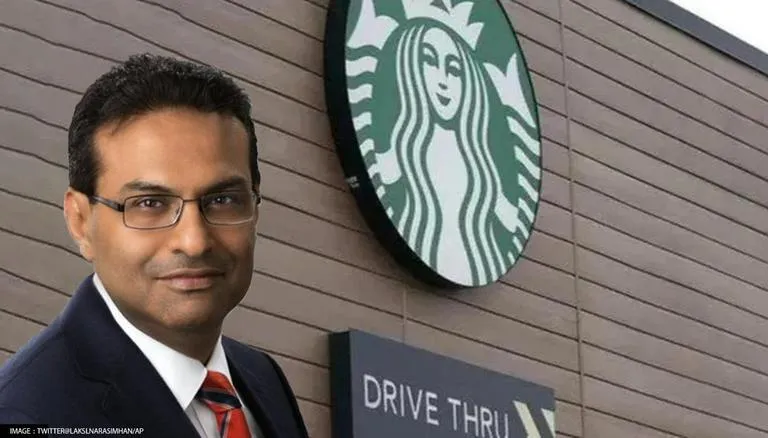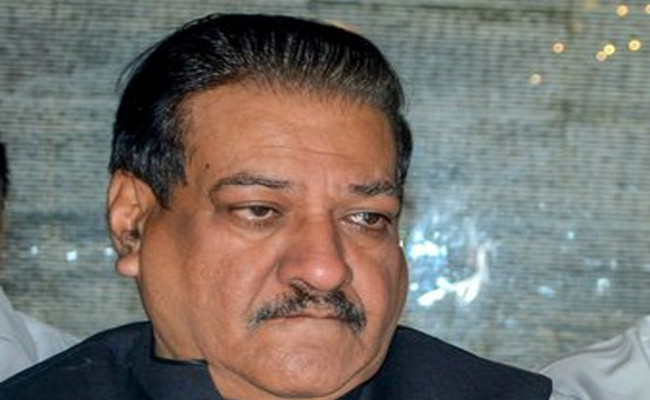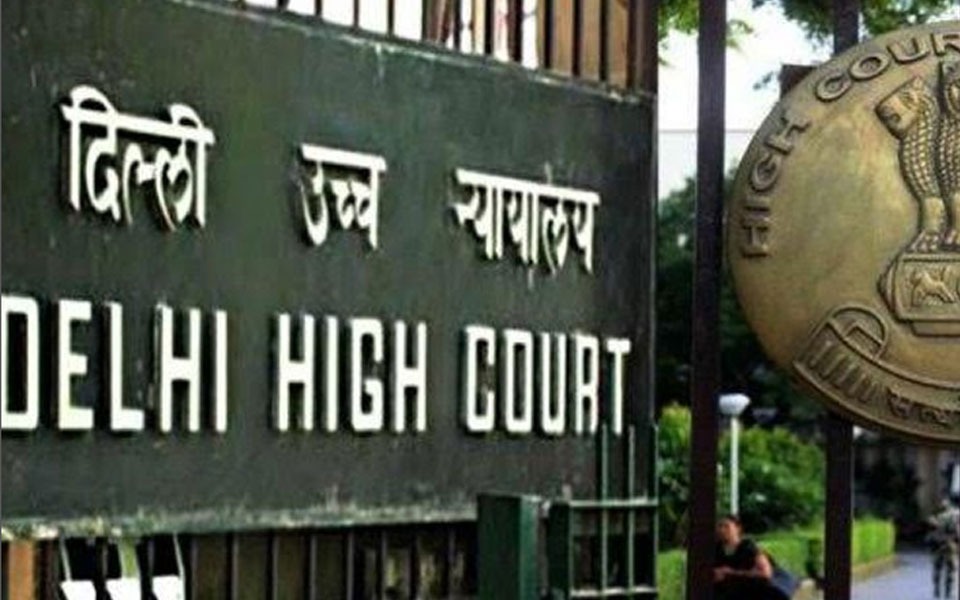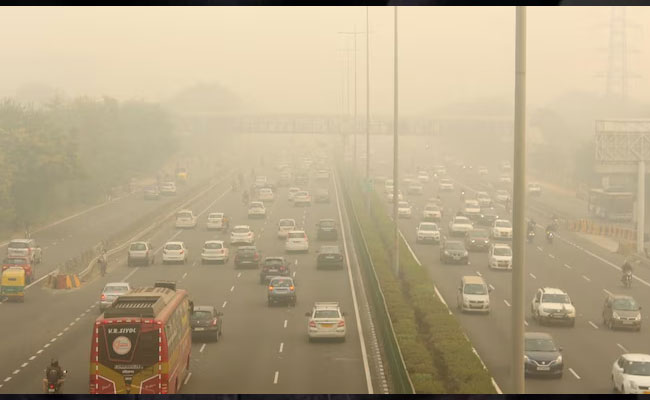New York, Mar 20: Indian-origin executive Laxman Narasimhan on Monday officially assumed the role of Chief Executive Officer of global coffee giant Starbucks, joining the growing cohort of business leaders originally hailing from India at the helm of global corporations.
In September last year, Starbucks had announced that Narasimhan would become the company's next chief executive officer and a member of the Starbucks Board of Directors.
Following the global search for the new leader of Starbucks to succeed company founder and now former CEO, Howard Schultz, Narasimhan joined Starbucks as incoming CEO on October 1, 2022 after relocating from London to the Seattle area.
"Effective today, Laxman Narasimhan has assumed the role of chief executive officer and will join the company's board of directors," Starbucks said in a statement.
Narasimhan will lead Starbucks Annual Shareholder Meeting on March 23.
"As he ascends into the role, Narasimhan will continue engaging the leadership team, sharing his early learnings and insights and assessing opportunities for the company as they chart a path forward," the company said.
Narasimhan, the former CEO of UK-based consumer health, hygiene and nutrition multinational Reckitt Benckiser, brings to Starbucks nearly 30 years of experience leading global consumer goods businesses and advising retail, grocery, restaurant and e-commerce companies.
The company said that over the past five months, he has embarked on a unique immersion experience, traveling to work with employees in over 30 stores, manufacturing plants and in support centers around the world, "earning his barista certification" along the way.
"I am humbled to officially step into my role as Starbucks chief executive officer, leading our incredible team of more than 450,000 green apron partners around the world," the company statement quoted Narasimhan as saying.
He said the foundation laid by Schultz "building from scratch an iconic global brand fuelled by a lasting passion to uplift humanity" is truly remarkable, "and I am honoured to have the opportunity to build on this deep heritage.
"As a human connection business, we have limitless possibilities to deliver for our partners, our customers, our investors and our communities through every cup and every connection. I am excited to work alongside our partners worldwide to unlock the limitless future of Starbucks."
With his appointment, Narasimhan joined the growing list of Indian-origin CEOs at the helm of global giants, including Microsoft CEO Satya Nadella, Adobe CEO Shantanu Narayen, Alphabet CEO Sundar Pichai and IBM Chairman and Chief Executive Officer Arvind Krishna. Indra Nooyi had served as PepsiCo's CEO for 12 years before stepping down in 2018.
Former Mastercard CEO Ajay Banga was last month nominated by US President Joe Biden to lead the World Bank.
Narasimhan holds a degree in Mechanical Engineering from the College of Engineering, University of Pune, India.
He also has a Master of Arts in German and International Studies from The Lauder Institute at The University of Pennsylvania and a Master of Business Administration in Finance from The Wharton School of The University of Pennsylvania.
Starbucks said that it has unveiled a company-wide reinvention strategy and continues to deliver on more than USD 1 billion in investments in retail partners and stores for prioritized areas such as increased pay and sick time accrual, new financial well-being benefits, modernized training and collaboration, store innovation and equipment and the celebration of coffee.
Independent Starbucks Board of Directors chair Mellody Hobson said in the statement that Narasimhan's "intensive immersion" into the business coupled with his extensive experience as a proven brand builder, innovator and operator have uniquely prepared him to lead Starbucks into its next phase of growth.
"This immersion has deepened Laxman's understanding of Starbucks culture and values. In this time of learning and listening, he has already won the hearts and minds of our partners around the world," Hobson said.
Previously, Narasimhan has served as an executive in various leadership roles at PepsiCo, including as global chief commercial officer, where he was responsible for the company's long-term growth strategy and commercial capabilities.
Prior to PepsiCo, he spent 19 years at McKinsey & Company, where he advised companies across the retail, consumer goods, and healthcare industries in the US, Asia, and India.
He is a trustee of the Brookings Institution, a member of the Council on Foreign Relations, a member of the UK Prime Minister's Build Back Better Council and a member of Verizon's Board of Directors, according to the Starbucks website.
Let the Truth be known. If you read VB and like VB, please be a VB Supporter and Help us deliver the Truth to one and all.
Mumbai (PTI): Despite facing criticism, senior Congress leader Prithviraj Chavan on Wednesday stood by his controversial comments that India faced a "total defeat" in aerial fight with Pakistan on the first day of Operation Sindoor on May 7.
The former Union minister refused to apologise for his comments on the Indian military operation against terror hubs in Pakistan and PoK in aftermath of massacre of tourists at Pahalgam in Jammu and Kashmir in April.
Talking to reporters in Pune on Tuesday, Chavan claimed India faced a "total defeat in the aerial fight (with Pakistan) on May 7 which lasted for half-an-hour".
"One may believe this or not. After that the Indian Air Force got grounded and not a single aircraft took flight that day.... be it Gwalior, Bhatinda or Sirsa, there was a possibility of aircraft being shot down, so our complete Air Force was grounded," the former Maharashtra chief minister had said.
Hitting out at Chavan, Maharashtra Deputy Chief Minister Eknath Shinde accused the Congress of speaking the language of Pakistan. He said questioning the military action was akin to demoralising the morale of armed forces.
ALSO READ: New safety wristbands launched for children at Makkah’s Grand Mosque
"The criticism does not stem from the love of the nation, but love for Pakistan," said the chief leader of the Shiv Sena, a key constituent of the BJP-led NDA.
Chavan, however, remained defiant.
"There is no question of apologising. The Constitution has given me the right to ask questions," the Congress veteran asserted.
Chavan also questioned the need of having a 12-lakh strong Army when future wars will be about aerial combats and missiles. "During Operation Sindoor we saw that there was no movement of the Army even for a kilometre," he had said.
BJP Lok Sabha MP and spokesperson Sambit Patra said Chavan's remarks are loaded with sedition.
"He (Chavan) has refused to apologise. The Indian armed forces struck 100 kms inside the Pakistan territory and destroyed 11 air strips (of the Pakistani Air Force). He made remarks that the Indian Army did not even move an inch (during the military operation). This is nothing but a statement full of sedition, a statement of a traitor," Patra said, lashing out at the Congress leader.
The BJP spokesperson maintained the Congress appears to be standing with Chavan and alleged the Opposition party is playing into foreign hands.
Congress leaders Sonia Gandhi and Priyanka Gandhi Vadra should apologise for it, he added.
Union minister Giriraj Singh of the BJP insisted it was not right to devalue the valour of Indian armed forces.
Samajwadi Party MP Virendra Singh suggested that wherever armed forces are concerned, every Indian should be mindful of statements they make and ensure their comments do not demoralise the military.
Operation Sindoor was a result of "mistakes of politicians", he claimed.
TDP MP Krishna Devraylu said after the poll defeat in Bihar, the Congress is rattled and their leaders have been talking absurdly.
"Chavan's remarks are a prime example of this. This kind of disrespect to our armed forces is not necessary. If the Congress is angry with the NDA, it should show it in a different way and not drag armed forces into it," Devraylu opined.
AAP MP Ashok Mittal said such statements should not be made by any senior politician, especially by someone who has been a former chief minister.
The Indian armed forces registered a strong victory and destroyed terror launchpads in Pakistan during Operation Sindoor, Mittal added.





